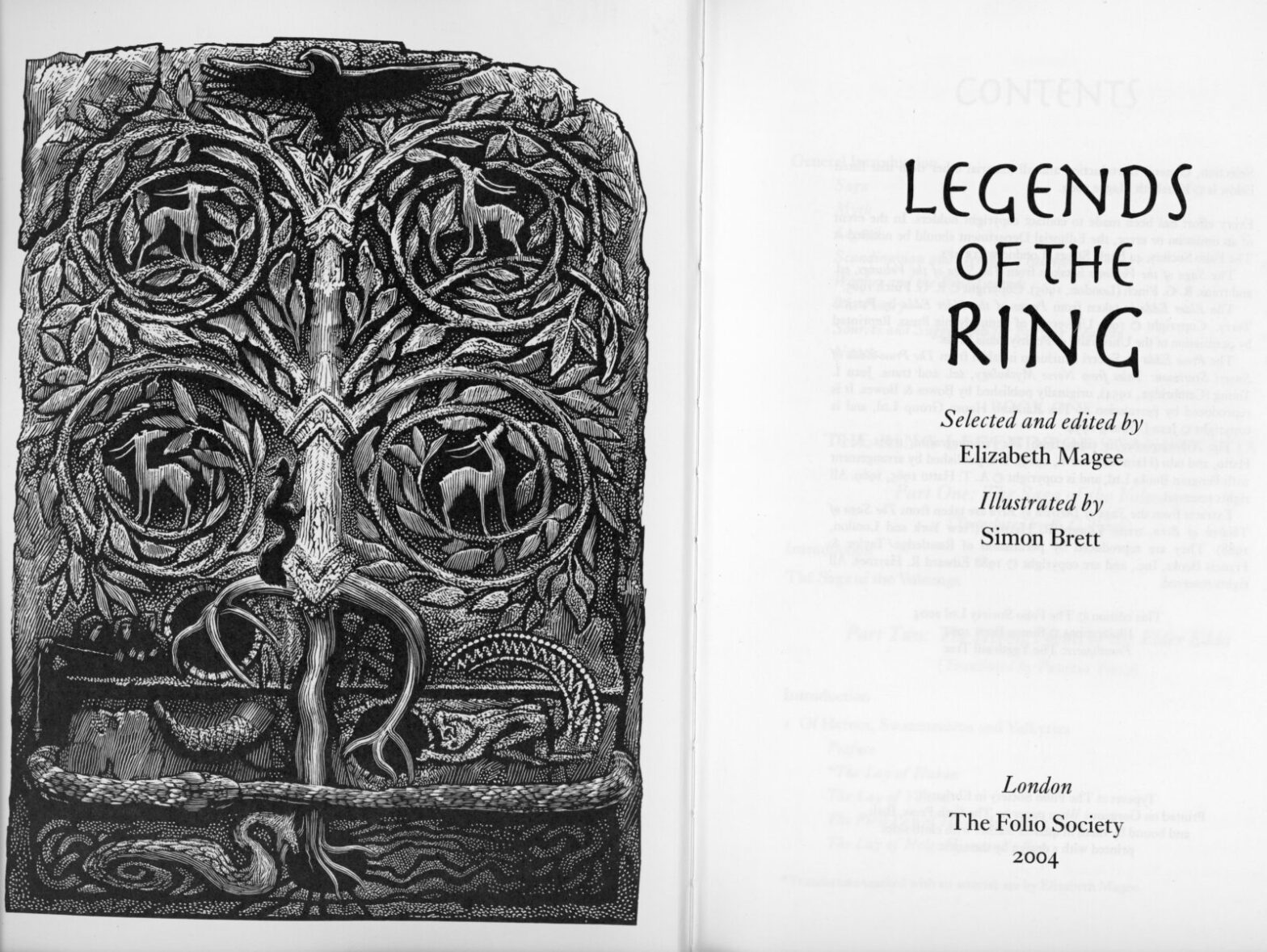We have now reached Parts Three and Four of “The Legends of The Ring”. Each tells the story of Siegfried; Part Three as a poem and Part Four as a seven act play. Each of these has been translated by Elizabeth Magee who has done remarkably well to maintain the rhyming couplets and rhythm of the originals.
In her introduction to The Lay of Horn-Skinned Siegfried she tells us that it “is an anonymous work, written around 1500, probably in south Germany and possibly in Nuremberg itself…..Despite its popularity, no-one has ever suggested that [it] is world-class literature. Neither the quality of the poetry nor the structure of the poem would qualify for such an epithet.” I agree with her entirely. The lines are in ponderous iambic hexameter. Magee goes on to describe the work as “cobbled together……joints and couplings are so obvious, the starts and restarts, interpolations, contradictions and repetitions, that one begins to conceive an affection for the poet’s modus operandi and to regard these characteristics as part of the poem’s charm.”
The work does recount Siegfried’s full story of birth, adventures, achievements and death. “The youngster was so headstrong, so big and strong and tough/ , His father and his mother had soon had quite enough./ He wouldn’t serve another in all his livelong day,/ And all he thought and cared for was getting right away.”
The Tragedy of Horn-Skinned Siegfried, A Tragedy with Seventeen Characters in Seven Acts, by Hans Sachs, following the tale in the Lay, was written in 1557, with much smoother rhythm also in rhyming couplets. The speeches given to the dramatis personae, for example in the hammering of the anvil, add a certain comedy to the tragedy.
We have a prologue announced by the Herald who tells what the audience will be given and recounts the lessons learned in the Epilogue.
Both works explain “Horn-Skinned”
Here is a repeat of Simon Brett’s relevant engravings.
This completes my focus on The Legends of The Ring.




Wonderful rendition. I love your final sentence but would have you change this to thus which I personally thinks suits the tone a wee bit more. You really have a knack for these book reviews, Derrick.
Thanks very much, Pat
Just re-read the difference between this and thus and you are correct. Sorry I indicated otherwise.
What is the difference between “Thus” and “this”? Thus means “therefore” or “because of this.” It means the previous statement you made means something additional. “I was in bed with a fever. Thus, I didn’t go to work.
Thanks again, Pat
You’re welcome.
I am enjoying your reviews of “The Legends of The Ring”, Derrick. “Horn-Skinned” is an interesting adjective for Siegfried. Perhaps you will explain?
Thanks very much Lavinia. As you know I try to avoid giving event detail in my reviews. However, I’m sure this is different. When slaying dragons their horny scales melted and he smeared them all over himself except for a part between his shoulder blades he couldn’t reach. Once the melt hardened his skin was impregnable except for his version of he “Achilles heel”
Fascinating!
Thank you! I thought those might be dragon scales.
These legends, unknown to me, have been fascinating to discover through your reviews. I have enjoyed reading them.
Thank you very much, Anne. I am pleased at that
A most interesting writing style, Derrick. Perhaps unedited?
Thanks very much. Quite possibly
You’re to be commended for sticking with this. Fabulous engravings, so visceral.
Thank you so much, Merril
Bravo, Derrick. You sure have more determination than I do.
Thanks very much, GP. What about all the research you have done on the paratroopers?
I appreciate that!
The illustrations express very well the content! P.S. Not sure what’s wrong but I can’t comment as Popsicle Society and my details are not saved, so every time I post a comment I need to mention my name and email….Also, I don’t get any notifications when you reply to my comments…
Thank you very much, Riba. Probably a WP blip. I am grateful for your perseverance
I have really enjoyed your series of reviews on The Legends of the Rings!
Also, the sharing of the powerful illustrations!
(((HUGS))) ❤️❤️
Thank you very much, Carolyn XX
I suspect I’ve enjoyed your reviews more than I would enjoy the books
I suspect you are right – but thank you very much, Sheree
No probs
As much as I appreciate your wonderful reviews, Derrick, I am glad this cycle has come to an end. This is personal: vivid memories of the college Music Literature professor whose favorite method of giving pop quizzes was to drop the needle at random on Wagner’s “Ring”, play for about 30 seconds, and have us identify the leitmotif, where it appears in the cycle, and its significance. Not my happiest college memories, I assure you.
The book details how each section influenced Wagner. I skipped that. I must have known. Thanks very much, Dolly.